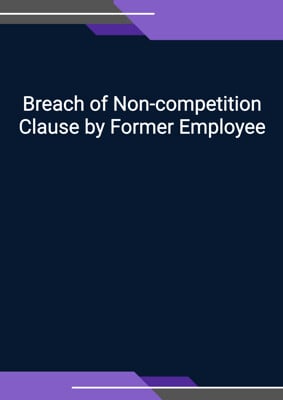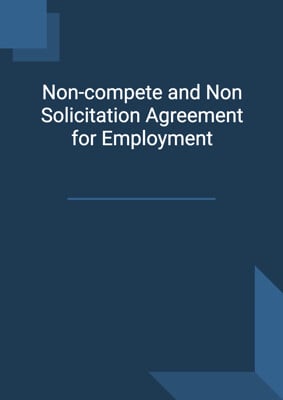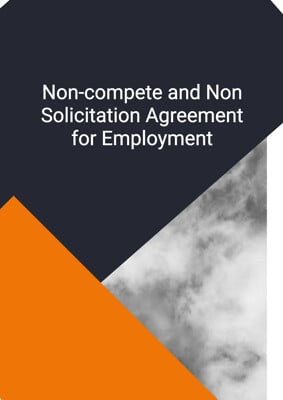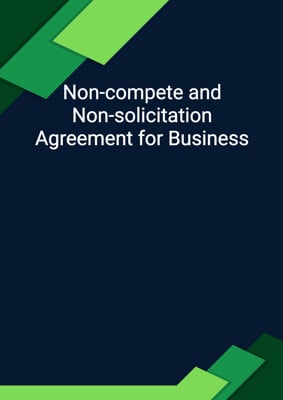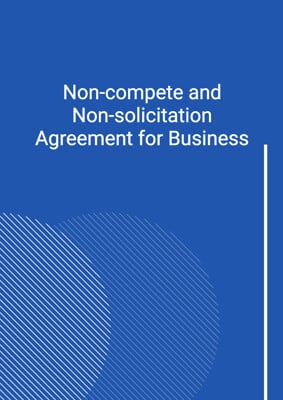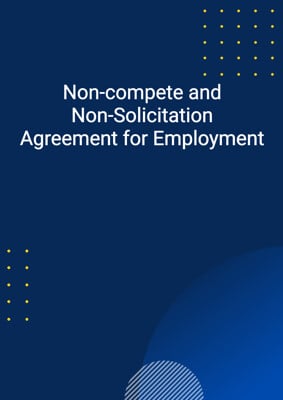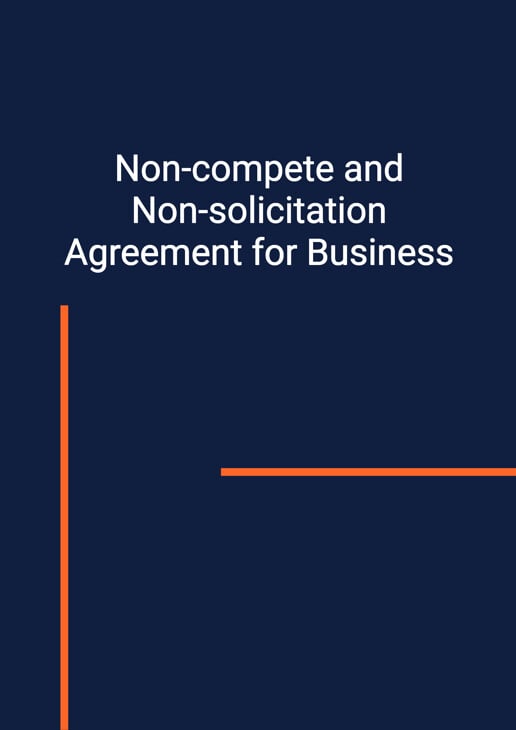
Non-compete and Non-solicitation Agreement for Business
Strict / Tight
One way Non Compete and Non Solicitation agreement for discussion of business relationship. It imposes a unilateral non-compete and non-solicitation obligation on one party. This is drafted in short and simple form to procure signing without negotiation. This agreement impose strict obligations on the Obligor.
How to Tailor the Document for Your Need?
01
Create Document
Fill in the details of the parties. You can click the "Fill with Member’s Information" button to complete it with information saved to your account.
02
Fill Information
Please fill in any additional information by following the step-by-step guide on the left hand side of the preview document and click the "Next" button.
03
Get Document
When you are done, click the "Get Document" button and you can download the document in Word or PDF format.
04
Review Document
Please get all parties to review the document carefully and make any final modifications to ensure that the details are correct before signing the document.
Document Preview
Document Description
The 'Non-compete and Non-solicitation Agreement for Business' is a legally binding document that outlines the terms and conditions under which the obligor agrees not to compete with or solicit from the company, or its successors or assigns. The agreement is important as it protects the business interests of the company and ensures that the obligor does not engage in any activities that may harm the company's reputation or competitive advantage.
The entire document is divided into several sections, each serving a specific purpose. The first section is the interpretation section, which provides definitions for key terms used throughout the agreement. This section ensures that both parties have a clear understanding of the terms used in the document.
The second section outlines the obligations of non-compete and non-solicitation. It specifies that the obligor undertakes not to compete with the company in a specific area and not to solicit any customers, clients, directors, officers, employees, and consultants of the company. Additionally, the obligor is required to keep confidential any trade secrets, business secrets, customer data, or confidential and proprietary information obtained from the company.
The third section contains acknowledgements from the obligor. It acknowledges that the restrictions and provisions set forth in the agreement are fair, reasonable, and necessary to protect the business interests of the company. The obligor also acknowledges that they have had the opportunity to obtain legal counsel to review the agreement.
The fourth section specifies the term of the agreement. It states that the obligations under the agreement will terminate after a certain number of months following the termination of discussions related to the purpose and the termination of the business relationship underlying the purpose.
The fifth section addresses the consequences of breach. It states that any breach of the agreement will entitle the company to injunctive relief, liquidated damages, and/or account and repayment of all profits realized by the obligor as a result of the breach.
The sixth section deals with the enforceability of the agreement. It states that if any provision in the agreement is found to be invalid or unenforceable, the remaining provisions will remain in full effect. The parties are also allowed to come to an agreement and substitute the invalid provision with a similar enforceable term.
The seventh section clarifies that the agreement does not confer any rights under contracts for third parties. Only the parties to the agreement have the right to enforce its terms.
The eighth section specifies the governing law and jurisdiction of the agreement. It states that any disputes arising from the agreement will be subject to the jurisdiction specified in the jurisdiction clause.
The ninth section states that the agreement constitutes the entire agreement between the company and the obligor regarding the subject matter of the agreement.
The tenth and final section confirms that the agreement is legally binding and that the parties have the authority and capacity to enter into the agreement. It is signed by the duly authorized representatives of both parties.
How to use this document?
To use the 'Non-compete and Non-solicitation Agreement for Business', follow these steps:
1. Interpretation: Familiarize yourself with the definitions provided in the interpretation section of the agreement. This will ensure that you understand the key terms used throughout the document.
2. Obligations of non-compete and non-solicitation: Review the obligations outlined in this section. Make sure you understand that you are not allowed to compete with the company in a specific area and that you cannot solicit any customers, clients, directors, officers, employees, and consultants of the company. Additionally, ensure that you understand your obligation to keep confidential any trade secrets, business secrets, customer data, or confidential and proprietary information obtained from the company.
3. Acknowledgements: Read and acknowledge the statements in this section. Understand that the restrictions and provisions in the agreement are fair, reasonable, and necessary to protect the business interests of the company. If needed, seek legal counsel to ensure your understanding.
4. Term: Take note of the specified term of the agreement. Understand that your obligations under the agreement will terminate after a certain number of months following the termination of discussions related to the purpose and the termination of the business relationship underlying the purpose.
5. Breach: Be aware of the consequences of breaching the agreement. Understand that the company is entitled to injunctive relief, liquidated damages, and/or account and repayment of all profits realized by you as a result of the breach.
6. Enforceability: Understand the provisions regarding the enforceability of the agreement. If any provision is found to be invalid or unenforceable, the remaining provisions will still be in effect. Be aware that the parties may come to an agreement and substitute the invalid provision with a similar enforceable term.
7. No rights under contracts for third parties: Understand that only the parties to the agreement have the right to enforce its terms. No third party has the right to enforce any of the agreement's terms under any law.
8. Governing law and jurisdiction: Take note of the governing law and jurisdiction specified in the agreement. Understand that any disputes arising from the agreement will be subject to the jurisdiction specified in the jurisdiction clause.
9. Entire agreement: Acknowledge that the agreement constitutes the entire agreement between you and the company regarding the subject matter of the agreement.
10. Binding: Confirm that the agreement is legally binding and that you have the authority and capacity to enter into the agreement. Sign the agreement as the duly authorized representative of the obligor.
Not the right document?
Don’t worry, we have thousands of documents for you to choose from:
